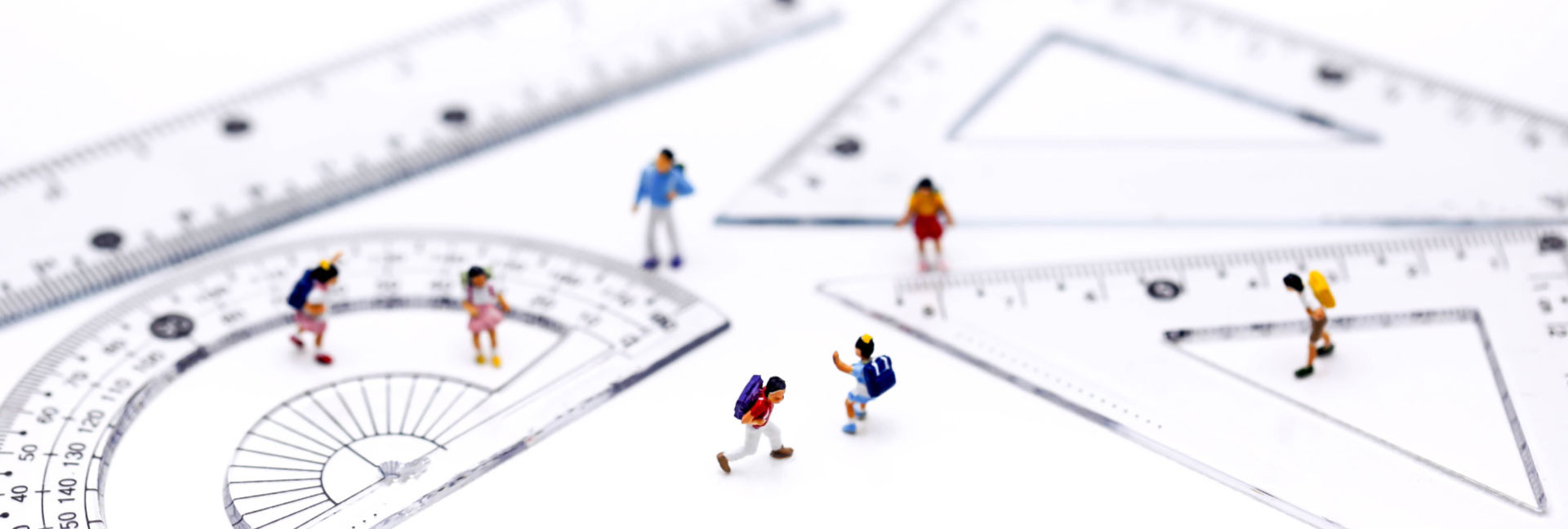
Preschool is the first stage of your child’s education journey which will likely span more than two decades. It is also the stage where parents arguably have the most significant role to play given their children’s tender age. Numeracy is one of two key academic skills your child should acquire in preschool - the other being reading - and your support will be crucial to sustain your child’s interest in Maths and build a strong foundation that will serve him or her well in primary school. This is because the classroom is not the only place where learning can happen, with the real world providing many readily available everyday experiences and activities that parents can use to help their children develop an understanding of mathematical concepts. In this article, The Learning Lab highlights some ways through which parents can nurture numeracy skills in their preschool children from a young age.
There are 4 key mathematical concepts that preschool children should develop an understanding of from an early age: counting and number sense, measurements, geometry and spatial relationships, and patterning skills. These concepts may sound abstract, but there are many practical ways in which you can tap on your child’s natural curiosity to get him or her interested in and familiar with them.

1. Counting and Number Sense
Counting and numbers are often the first mathematical concepts children encounter in their lives. The chances are that you have introduced your child to some kind of counting through his or her interactions with everyday items even before enrolling in preschool. You may even have gotten your child started on writing out the numbers from 0 to 9.
Here are a few more structured suggestions that you can consider to stimulate your child’s learning:
Allowing him or her to experiment more by playing with different sets of daily objects in the classroom/at home
Encouraging him or her to count out loud and learning to pen down the numerals after counting
Incorporating some mathematical terms (e.g. “one thing/two things”, “more than”, “less than”, “many”, “little”) when speaking to your child
Using stimulus like toys or snacks to teach him or her about the relationship between numbers (e.g. “Can you show me three of your favourite toys? If you gave me one, how many would you have left?”
Through such daily encounters that you orchestrate, your child will be better able to develop the ability to see relationships between numbers, compare different sets and numbers of objects, and vocalise the appropriate terms.

2. Measurements
At this stage of his or her development, your child is also beginning to visually measure, classify and categorise objects and people that he or she comes across according to traits like colour, weight, height, and volume. In other words, he or she is learning how to group things together or separate them, based on observations and comparisons.
To accelerate your child’s acquisition of measurement concepts you can consider the following:
Using toy blocks of different colours and sizes to build structures, and encouraging your child to build his or her own structures based on a certain set of rules (e.g. a structure five blocks high made up only of red blocks)
Helping them to visualise and feel the difference in the structures using touch and sight
Encouraging them to describe what they see with appropriate terms for comparing objects / use of directional words (e.g. “The tall structure made up of many red blocks is heavier than the short structure made up of a few green blocks”)

3. Geometry and Spatial Relationships
Your child’s understanding of shapes and spatial relationships is extremely important, as it underpins many more complex mathematical concepts that he or she will encounter in future at higher levels. As your preschooler begins to interact with both flat (2-D) and solid (3-D) shapes on a daily basis, he or she is also being exposed to the concepts of shapes, sizes, angles and dimensions for the first time.
Your child may not know how to express differences of this nature initially, and you can help him or her by:
Using the right terms to categorise and recognise the different shapes and talk about how they are different (e.g. the square block is under the table)
Using relatable items that children can play and form shapes with (e.g. straws, playdough, Lego blocks, stationery)
Matching 2-D objects/drawings with their corresponding 3-D objects to aid your child’s visualisation
Identifying and reiterating the geometrical shapes seen in your child’s environment, whether at home or outside

4. Patterning Skills
Patterning skills, as the name suggests, refer to the ability to put items in a specific order such that it repeats and creates a logical pattern. This can be in the form of numbers, shapes, or images. Preschoolers are learning to analyse patterns and make connections between items to deduce what comes after.
The Learning Lab is now at locations. Find a location that suits your needs.
If you have any questions about our range of programmes or class schedules, you may contact us at 6733 8711 or drop us an email at enquiry@thelearninglab.com.sg.
What you can do to help your child pick up these skills include:
Creating real-life, interactive patterns where children can manipulate 3-D objects, understand and retain the concept better
Using your child’s favourite objects and colours to better engage and interest him/her (e.g. by asking your child to arrange his or her toys by size, type, or colour)
Showing that patterns can be found everywhere, tapping multiple senses when teaching (e.g. “Look at all these leaves. Some are bigger, some are smaller, but all of them are green.”)
Experience TLL Lessons at Home
Helping preschool children acquire foundational skills and understand mathematical concepts is not difficult. As a parent, you can make the process even smoother for your child by incorporating these skills and concepts into everyday activities that are fun, relatable, and relaxed.
Experience TLL's difference for yourself by downloading these Early Years English and Maths activity guides and trying them out with your preschooler.
Find out more about our comprehensive preschool programme here.
The Learning Lab is now at locations. Find a location that suits your needs.
If you have any questions about our range of programmes or class schedules, you may fill in the form below or contact us at 67338711 or enquiry@thelearninglab.com.sg.



